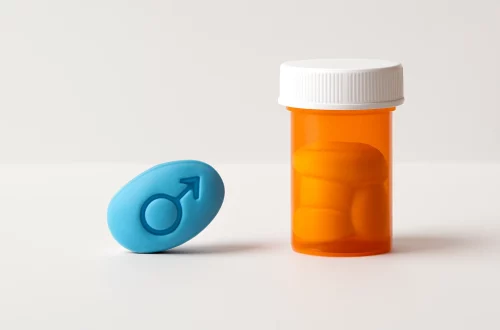
How Long Should You Wait to Eat After Brushing Your Teeth?
Brushing your teeth is a fundamental part of daily hygiene that many people often overlook. It’s a simple yet effective way to maintain oral health, prevent cavities, and promote fresh breath. However, the timing of your meals in relation to brushing can significantly impact the effectiveness of your oral care routine. The mouth is a complex environment where bacteria thrive, and the foods we consume can interact with the dental products we use. This leads to questions about how long you should wait to eat after brushing your teeth.
Getting into the habit of brushing at least twice a day is essential, but understanding the nuances of what to do afterward can elevate your dental care game. For instance, the type of toothpaste used, the acidity of your food, and how you care for your teeth after brushing can all play a role in your oral health. Many people may not realize that certain foods can neutralize the benefits of fluoride found in toothpaste, while others may contribute to enamel erosion. Therefore, it becomes crucial to educate ourselves about the best practices surrounding this everyday activity. Establishing a proper routine not only ensures that our teeth remain healthy but also that we maximize the benefits of our oral hygiene efforts.
Understanding Toothpaste Components
To fully grasp the importance of timing your meals after brushing, it’s essential to understand what toothpaste contains and how these components work. Most toothpaste includes fluoride, which helps strengthen tooth enamel and prevent cavities. When you brush your teeth, fluoride forms a protective barrier on the enamel, making it more resistant to acids produced by bacteria in the mouth.
However, this protective layer is not permanent. The fluoride needs time to bond effectively with your teeth. If you eat or drink immediately after brushing, you could wash away this protective layer before it has had a chance to work. This can be particularly detrimental if you consume acidic foods or beverages right after brushing, as they can further erode enamel and negate the benefits of fluoride.
In addition to fluoride, many toothpastes contain abrasives that help remove plaque and stains from teeth. While these components are beneficial for cleaning, they can also make your teeth more sensitive if you consume certain foods too soon after brushing. For example, citrus fruits and sodas can irritate sensitive teeth. Therefore, giving your mouth time to recover after brushing can significantly influence your overall dental health.
Understanding the composition of your toothpaste will help you make informed decisions about when to eat. It’s generally advisable to wait at least 30 minutes after brushing to allow the fluoride to take effect fully and to give your teeth a chance to recover from the cleaning process.
The Impact of Food Choices on Oral Health
The types of food you consume play a significant role in your oral health, especially when it comes to timing after brushing. Foods high in sugar can lead to the production of acids that harm tooth enamel. If you brush your teeth and then immediately indulge in sugary snacks or drinks, you’re creating an environment that promotes tooth decay.
Acidic foods such as citrus fruits, tomatoes, and vinegar-based dressings can also pose a risk if consumed right after brushing. These foods can soften the enamel and make your teeth more vulnerable, particularly if you have just applied fluoride from your toothpaste.
Moreover, certain snacks may adhere to your teeth more easily, increasing the likelihood of plaque buildup if you don’t give your mouth time to neutralize acids. For example, chips and candies can leave residues that linger and contribute to decay. Therefore, it’s wise to consider not just the timing but also the type of food you’re consuming after brushing.
In contrast, foods that promote oral health, such as dairy products, vegetables, and fibrous fruits, can be beneficial after brushing. These foods can help neutralize acids in the mouth and provide essential nutrients for maintaining healthy gums and teeth.
In summary, the timing of your meals, paired with your food choices, significantly affects your oral health. To maximize the benefits of brushing, it’s advisable to wait at least 30 minutes before consuming anything, especially if your meal consists of sugary or acidic foods.
The Science Behind Saliva Production
Saliva plays a crucial role in maintaining oral health. It helps to wash away food particles, neutralize acids, and provide minerals that can strengthen tooth enamel. After you brush your teeth, saliva production continues, contributing to the health of your oral environment.
When you eat immediately after brushing, you can disrupt the natural balance of saliva in your mouth. Saliva helps to rinse away food particles and bacteria, but if you’re eating right after brushing, you may not allow enough time for saliva to neutralize any remaining acids from your toothpaste. This disruption can lead to an increased risk of decay and other dental issues.
Research indicates that the pH level in your mouth can fluctuate based on your diet. Consuming food too soon after brushing can lead to a lower pH level, which is more acidic and harmful to your enamel. Allowing time for your saliva to work its magic can help neutralize these acids and create a more favorable environment for your teeth.
Additionally, saliva contains enzymes that assist in the digestion of food, which is vital for overall health. The act of chewing stimulates saliva production, but when you eat immediately after brushing, you may not give your mouth sufficient time to adjust to the change.
In conclusion, waiting to eat after brushing isn’t just about preserving fluoride; it’s also about allowing your saliva to function effectively. A waiting period of around 30 minutes can help maintain a balanced oral environment, supporting better dental health in the long run.
Best Practices for Post-Brushing Care
Establishing a routine that incorporates best practices for post-brushing care can significantly enhance your oral hygiene. Here are some key strategies to consider:
1. **Timing is Key**: As discussed, waiting at least 30 minutes to eat or drink after brushing is a good practice. This allows fluoride to bond effectively and gives your mouth time to neutralize acids.
2. **Rinse Carefully**: If you feel the need to rinse your mouth after brushing, consider using water instead of mouthwash. Some mouthwashes contain alcohol or other ingredients that may wash away fluoride.
3. **Choose Your Foods Wisely**: After brushing, opt for foods that are low in sugar and acidity. Dairy products, nuts, and vegetables can be great choices that support oral health.
4. **Hydration Matters**: Drinking water throughout the day can help keep your mouth hydrated and promote saliva production. This is beneficial for washing away food particles and maintaining a neutral pH.
5. **Regular Dental Visits**: Routine check-ups with your dentist can help you stay on top of your oral health. They can provide personalized recommendations based on your dental needs.
By incorporating these practices into your routine, you can enhance the effectiveness of your brushing and contribute to long-term dental health.
Remember, this article is for informational purposes only and should not be considered as medical advice. Always consult with a healthcare professional for any health-related issues or questions.




